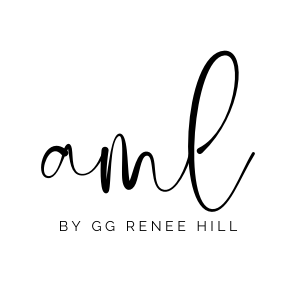the afterlife
october 22 | weekly warm-up
photo: @dmey503
This exercise is adapted from the NY Times article mentioned below.
Consider a hypothetical scenario, drawn from P. D. James’s novel The Children of Men. In Ms. James’s novel, humanity has become infertile, with no recorded birth having occurred in over 25 years. Imagine that you found yourself living in such circumstances. Nobody now alive is younger than 25, and the disappearance of the human race is imminent as an aging population inexorably fades away. How would this affect your desire to create?
As a writer/creator, you might see little point in continuing to write , since these creative activities are often undertaken with an imagined future audience or legacy in mind. Furthermore, faced with the knowledge that humanity would cease to exist soon after your death, would you still be motivated to give birth to new ideas and new life?
Last week, we talked about gestation and how the process of giving birth relates to bringing our ideas to life.
The similarities don’t end there. There is something in our wiring as humans that is fueled by the hope of the future. While we know that our own existence is temporary, we expect that the world will go on after we’re gone. By the way we live and what we create, we want to leave something behind that lasts beyond us. Whether we are consciously aware of it or not, many of us have legacy in mind. No one can know for sure if there is an afterlife for our souls or what it’s like, but through our own ability to create, we can bring about an afterlife here on earth. We have hopes that our descendants, our ideas, and our contributions will ripple on in some way after we are gone.
This train of thought ultimately asks us once again to contemplate: Why do I write?
The answers are just as diverse and as numerous as the writers who attempt to answer the question. Some will say that it’s a spiritual practice or a self-care ritual; a way of making sense of the world. Others will say it’s a way to make a living doing something that they happen to be good at or enjoy. Many writers are compelled to make the personal universal, and offer up their humanity with the hopes of making the world a better place. Many writers would check the box on all of these answers. There are also answers that I imagine are hard to admit, that we may keep hidden in our shadows. Like, we want to leave something of ourselves behind when we’re gone. We want to give ourselves an afterlife here on earth. We want to say: I was here and this is what I saw, this is what I felt, and this is the meaning I made from it. We want to be remembered.
It seems that all writers must grapple with the tension of writing for themselves and writing for others. When we struggle to act on our creative urges, we often feel that we are letting ourselves down in some way. But do we acknowledge that there is possibly more to it? Who else do we suspect that we are letting down? Likewise, when we find the courage to act on our creative urges and then face criticism or rejection or indifference, we may wonder why we keep putting ourselves through it. But do we acknowledge the positive impact that we are having on ourselves and the world through this sincere and purposeful effort? While this may be more difficult to measure, does it make it any less significant?
Recently, my therapist shared a story with me about a 70-year old intern that she trained with during her onboarding process at the practice where she works. The intern had always wanted to be a mental health therapist, but she spent most of her life working as a teacher (or maybe it was a secretary) and raising her children. She went back to school after retirement and fulfilled her dream of becoming a mental health professional. She told my therapist that she saw her grandchildren struggling to find their way in life, and a big part of her motivation was to set an example for them. Showing them that there are choices and opportunities at every age and to never give up on their dreams.
In a NY Times article, “The Importance of Afterlife. Seriously.” by Samuel Scheffler, he says, “Yes, our descendants depend on us to make possible their existence and well-being. But we also depend on them and their existence if we are to lead flourishing lives ourselves.” He goes on to say, “Even though we as individuals have diverse values and goals, and even though it is up to each of us to judge what we consider to be a good or worthy life, most of us pursue our goals and seek to realize our values within a framework of belief that assumes an ongoing humanity. Remove that framework of belief, and our confidence in our values and purposes begins to erode.”
This week’s exercise is adapted from that article, and it asks you to consider a world where the future of humanity is limited, and therefore so is the afterlife of our creations. How would this affect what, how, and why we create?

